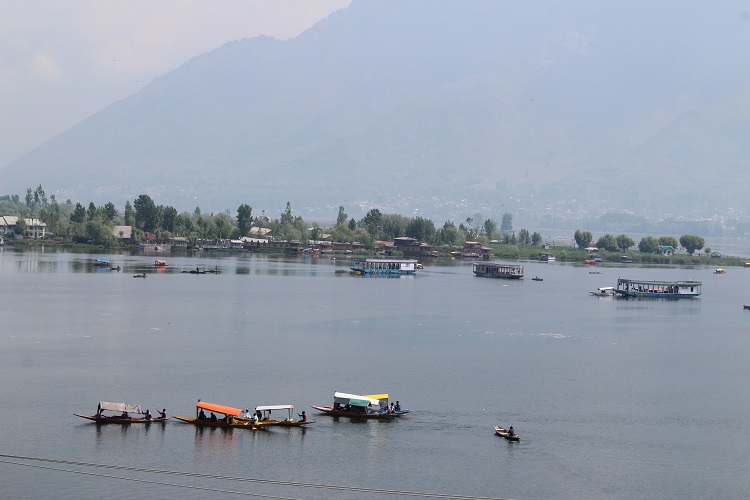
Looking back, one can safely say that the year gone by was a mixed bag for Jammu and Kashmir in both political and security domains. It goes without saying that though momentous changes took place the going was not totally smooth, but then, such cannot be expected from the region that has remained on the international radars for several decades.
On February 14, 2019 more than 40 Central Reserve Police Force (CRPF) personnel were killed in one of the deadliest attacks in Kashmir’s Pulwama district when a local Jaish-e-Mohammad (JeM) suicide bomber rammed a vehicle carrying explosives into their bus. The attack left the nation in shock even as the gruesome act was condemned worldwide.
In retaliation, the Indian Air Force (IAF) hit a terrorists’ training camp deep inside Pakistan at Balakot. On February 26, 2019 New Delhi announced that in a pre-dawn action, Mirage 2000 fighter jets of the IAF destroyed a JeM camp on the other side of the Line of Control (LoC) at Balakot, a town in Mansehra District of the Khyber Pakhtunkhwa province of Pakistan.
In a face-off with Pakistan Air Force (PAF) the next day, IAF fighter pilot Wing Commander Abhinandan Varthaman shot down an F-16 fighter jet of PAF but while doing so his aircraft was also hit by a missile forcing him to eject and parachute into the territory under Pakistani control. Varthaman was taken into custody but released after just 60 hours, which was a big diplomatic victory for India.
During the same time, in a case of mistaken identity, an IAF helicopter was accidentally shot down by IAF air defence systems causing the death of six IAF personnel and one civilian near a village in central Kashmir district of Budgam.
The parliamentary election to constitute the 17th Lok Sabha in India were held over seven phases from 11 April to 19 May 2019. The result declared on 23 May, 2019 witnessed a landslide victory for the Narendra Modi-led National Democratic Alliance (NDA). In J&K, the National Conference, a Kashmir based regional party won all three seats in Kashmir while BJP took remainder three seats in Jammu and Ladakh.
On August 5, 2019 the Union Parliament predominantly voted for reorganisation of the state of Jammu and Kashmir and dilution of Article 370. This was followed by the Jammu & Kashmir Reorganisation Act being passed by Parliament to split the state into two Union Territories — Jammu & Kashmir and Ladakh. As a precautionary measure against any violent reaction to this move, internet services were suspended and prohibitory orders were put into force. There were huge deployment of security forces that were carried out to maintain law and order with more companies of CRPF being sent in.
Protests and stone pelting incidents against this move were reported from some areas in the valley. Despite authorities lifting curfew in over a fortnight, the shutdown against the scrapping of Article 370 lasted for over 120 days in many areas.
On September 27, 2019 Pakistan Prime Minister Imran Khan raised Kashmir issue at UNGA but his appeal for intervention did not find any takers and his attempt to internationalise the Kashmir issue fell flat and New Delhi scored a diplomatic win yet again.
The digital blackout in Kashmir has completed 150 days with no sign of restoration of the services in near future. As a result, scores of people risk losing their jobs as IT-related firms are on the verge of shutting down due to lack of internet availability.
Three former chief ministers (Farooq Abdullah, Omar Abdullah and Mehbooba Mufti), and several mainstream political leaders were taken into preventive custody. Farooq Abdullah, a sitting Member of Parliament and three-time chief minister, was later booked under Public Safety Act (PSA) a law originally introduced in 1978 by Mr Farooq’s father Sheikh Mohammad Abdullah to deal with timber smugglers and extended to cover militants, stone pelters and separatist leaders.
On October 31, 2019 the reorganisation of erstwhile J&K was formally completed with Girish Chander Murmu being sworn in as the first Lieutenant Governor of the Union Territory of Jammu and Kashmir and former bureaucrat Radha Krishna Mathur as the first Lieutenant Governor of strategically-located Laddakh.
As 2019 came to an end, New Delhi scrapped two holidays that were only applicable in erstwhile J&K. The first is the ‘martyrs’ day’ observed on July 13 in remembrance of Kashmiris who were victims of police firing during Dogra rule in 1931. The second is December 5, which is the birth anniversary of former J&K Prime Minister Sheikh Muhammad Abdullah. Removing these dates from the list of holidays has triggered a political storm in the restive Kashmir Valley.
Kashmir’s economy is the worst sufferer due to the events in 2019. The shutdown has caused a loss to the tune of Rs 17,878 crore in four months of restrictions. Tourism sector is in shambles while artisans and weavers are jobless. With estimated losses of around Rs 2,520 crore, the manufacturing sector is in tatters.
Despite the ups and downs, a lot has to be achieved in 2020 and one gets a feeling that these developments could help in ushering an environment of normalcy and development in Jammu and Kashmir. Yet, even though the pace has been set, more sustained efforts are required in 2020 to ensure that the sentiments of positivity trickle down to the masses!
